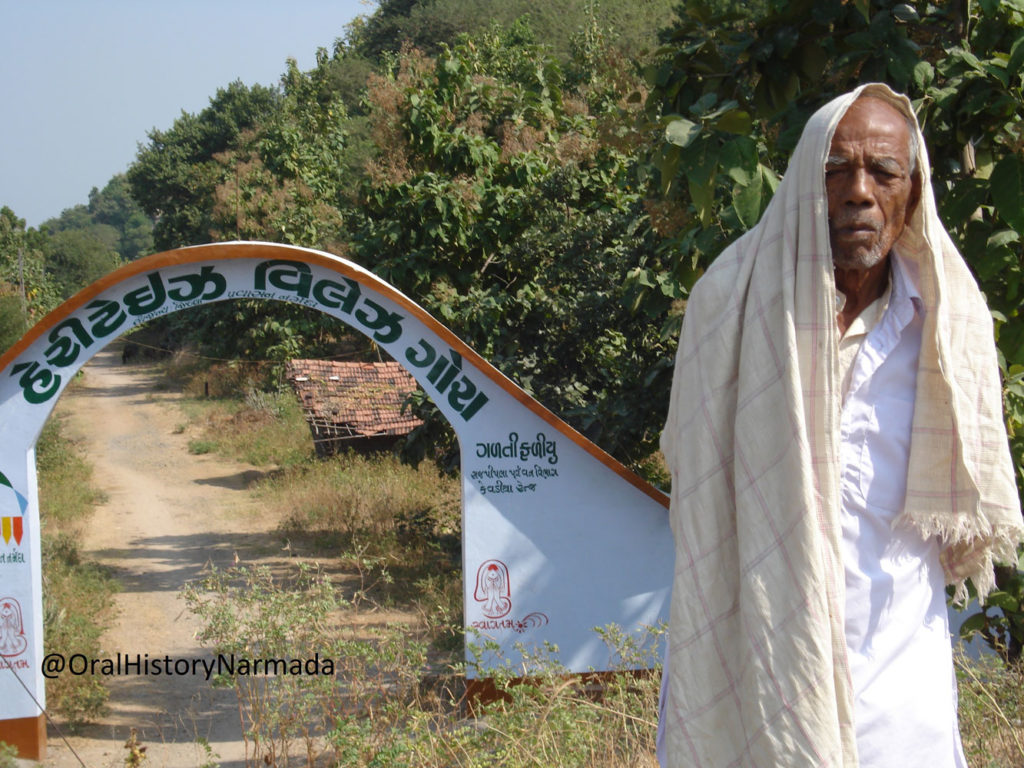Village Gora, Kevadia Colony, Gujarat.
Dalsukhbhai comes from the village Gora, Kevadia Colony, Gujarat. He was a young man in 1961 when the foundation stone of the Navagam Dam (later to become the Sardar Sarovar dam) was laid by India’s first Prime Minister, Pandit Nehru. It was then that his land was acquired as part of the acquisition of the lands of six Adivasi villages including Gora for a colony of the staff and workers of the Sardar Sarovar Project (SSP) at Kevadia, Gujarat. The other five villages besides village Gora that lost lands to the SSP project colony, the Kevadia Colony are Limdi, Navagam, Kevadia, Kothi, and Waghadia.
Dalsukhbhai is witness to a very long period in the history of the SSP. He tells us about the initial surveys for the dam carried out in the 1950s and 60s for which he as a young boy was employed as a labourer; about the coming of Pandit Nehru to Kevadia and the promises he made to the scheduled tribe communities inhabiting those villages; about the dispossession and acquisition of adivasi lands for the project staff colony; and about the early struggle waged by the people of the six villages comprising Kevadia colony and the response of the state. He explains how the adivasis who lost their lands to this project colony were never considered to be Project Affected People and hence were never rehabilitated and how their struggle for rehabilitation continues even today.

Interview Duration:
00:15:00
Language:
Audio in Gujarati, Subtitles in English
Subtitles can be switched on and off by clicking ‘CC’ button at the bottom right of the video
It is important to note here that when Pandit Nehru laid the foundation stone of the Navagam Dam, the height of the dam was much smaller/lower at 161 feet. The height of the dam was increased much later and to know the history of how the Navagam Dam, now called the Sardar Sarovar Project got its current height of 455 feet, read the book, THE STRUGGLE FOR NARMADA: AN ORAL HISTORY OF THE NARMADA BACHAO ANDOLAN, BY ADIVASI LEADERS KESHAVBHAU AND KEVALSINGH VASAVE.